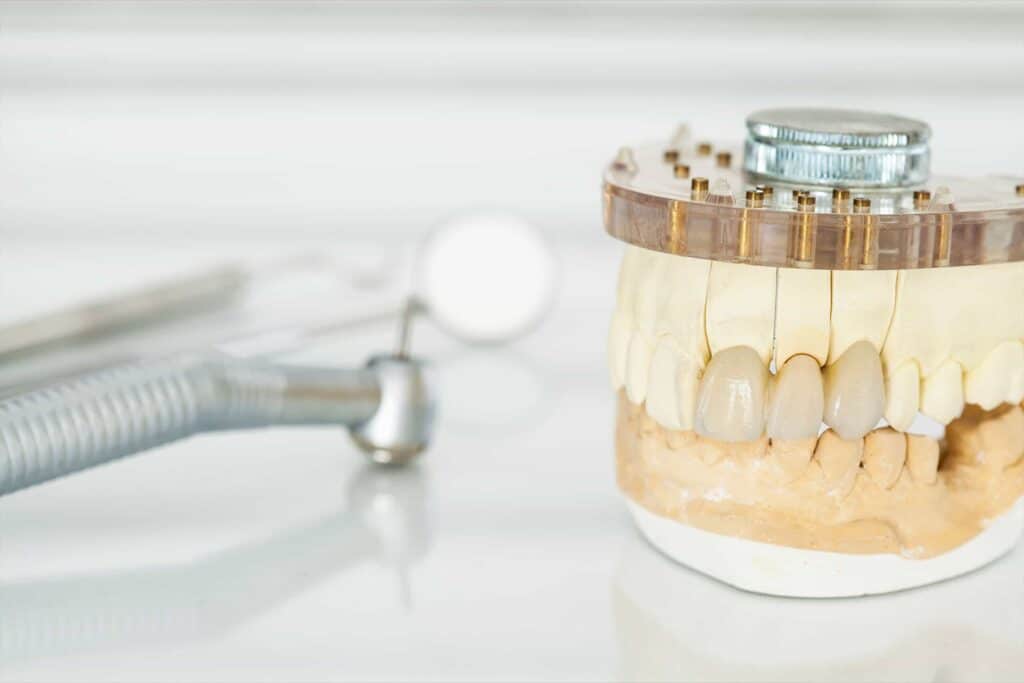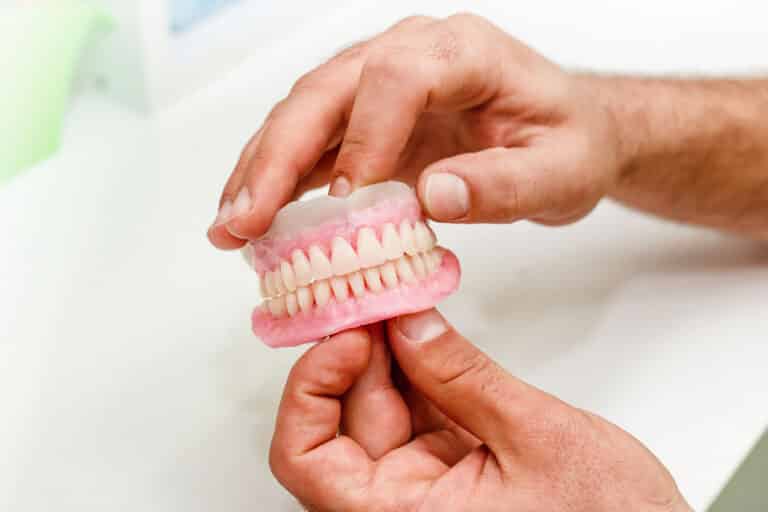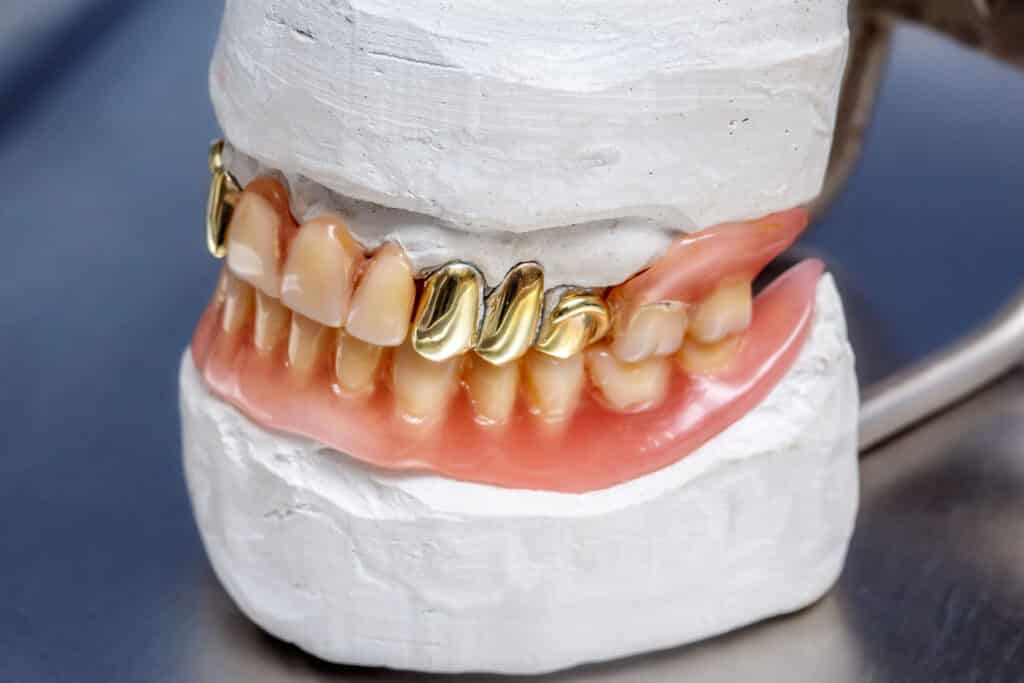Dental deep cleaning differs from routine dental cleanings you get once or twice yearly. They are also called scaling and root planing, and they’re a more intense cleaning that goes under the gums to cure and prevent periodontal disease. Typically, a deep cleaning require anesthesia, but for some it may not.
A dentist will recommend deep cleaning at the first signs of periodontal disease. Periodontal disease causes bone loss and eventual tooth loss when left untreated, so it’s essential to schedule dental checkups regularly and have one as soon as possible when recommended.
The Difference Between Deep Cleanings and Regular Cleanings
Regular teeth cleanings are necessary for oral hygiene and to maintain overall dental health. Not only do routine cleanings help keep your teeth looking fantastic, but it leads to strong and healthy teeth.
When you ignore regular cleanings, your teeth and gums could become weaker and more prone to infections.
Regular cleanings focus above the gum line, scaling and polishing the outer surface of the teeth. On the other hand, deep cleaning involves the removal of bacterial colonies, plaque and tartar that form in pockets under the gum line and the roots of the teeth.
In the same way a surface scrub does not remove rot in the foundations of a house, a regular surface cleaning does not adequately clean teeth and gums with active periodontal disease.
If you’ve reached a point where your teeth and gums require a deep cleaning, regular cleaning will not be sufficient to remove the bacteria from underneath and along your gums.
While regular cleanings are helpful, they do not substitute deep cleanings.
Who Performs a Deep Cleaning?
A dental deep cleaning is generally performed by a dental hygienist. Scaling is the process of removing plaque and calculus from teeth. Root planing is the process of smoothing the root surfaces of teeth to remove plaque and calculus. A deep cleaning will remove all the plaque and tartar from your teeth, leaving them healthy and clean.
What are Risk Factors for Deep Cleanings?
A deep cleaning is an essential first step to fighting various levels of periodontal disease. There’s no question that a deep cleaning can treat gum disease, but the process doesn’t come without risks. Your dentist will likely discuss these risks with you before they schedule one for you, and they include:
- No guarantee of gum attachment to the teeth.
- Soreness and sensitive gums after the procedure.
- Increased tooth sensitivity.
- Potential nerve damage (incredibly rare).
- May appear to cause gum recession*.
*The recession may appear to be from the deep cleaning, however periodontal disease inherently has some degree of recession.
When untreated, inflamed tissues will appear at normal height and shrink once healthy afterwards.
The most common yet undesirable side effects of deep cleaning are pain and sensitivity. Overall, the potential risks from having your dentist deep clean your teeth are minimal, and any after-effects will last from five to seven days.
Do They Hurt?
A deep cleaning are much more thorough than regular cleanings, and to remove all the bacteria and tartar, your dentist or hygienist will go well below the gum line and into potentially sensitive pockets. It’s common for them to cause pain and discomfort, however the amount of pain varies from patient to patient.
It’s typical to use a local anesthetic to numb the part of the mouth they intend to clean. If your entire mouth requires a deep cleaning, it is typically done in two appointments.
When Do I Need a Deep Cleaning?
Most people need two regular dental cleanings each year, and during these cleanings, your dentist will assess if a deep cleaning is suitable for you. If your teeth are well-maintained, you may only need one, primarily if the quality of the periodontium is good.
However, just like it is easier to re-dislocate a shoulder, it will be easier for those who have needed a deep cleaning once to need it again in the future. To help maintain good oral health, those who have had them typically require 3-4 maintenance cleanings per year to prevent needing another one in the future.
A deep cleaning may be more frequent for those struggling with poor oral hygiene or genetics-related issues. If left untreated, periodontal disease can run rampant in gum pockets, risking the buildup of plaque and tartar that could lead to bone loss.
Short of surgery, which isn’t always necessary, they are the best way to keep advanced periodontal disease at bay.
How Much are Deep Cleanings?
A deep cleaning are typically between $150 and $400 per quadrant. If you’re unsure of how much the procedure might cost, you should start by asking your dentist about their typical charge.
Dentist offices often have programs that help pay for procedures, including membership programs that offer discounts. Dental insurance will typically partially cover them, however each plan has many nuances that dictate how covered treatment can be rendered.
If you don’t have employer-issued health insurance, or it doesn’t include a dental plan, you can try for dental coverage through the Affordable Care Act available in your state. Not only are plan premiums typically low-cost, but they will also lower the overall cost of your deep cleaning.
Sometimes insurance isn’t an option. Prices depend on how much of your mouth requires a deep cleaning and the local anesthetic utilized during the process. Speaking to your dentist or the billing department will give you a good idea of what you’ll owe in any situation.
Preparing for a Deep Cleaning
Your dentist’s office will provide instructions to prepare for your deep cleaning. Typically, there’s not too much you can do to prepare, though thoroughly brushing your teeth before your appointment can help minimize the number of bacteria present during cleaning. If you’re sensitive to pain, anesthesia – whether a local anesthetic or general, may be something you discuss with your dentist.
Overall, a deep cleaning is a standard procedure and a sometimes necessary step toward keeping your mouth as healthy as possible.





